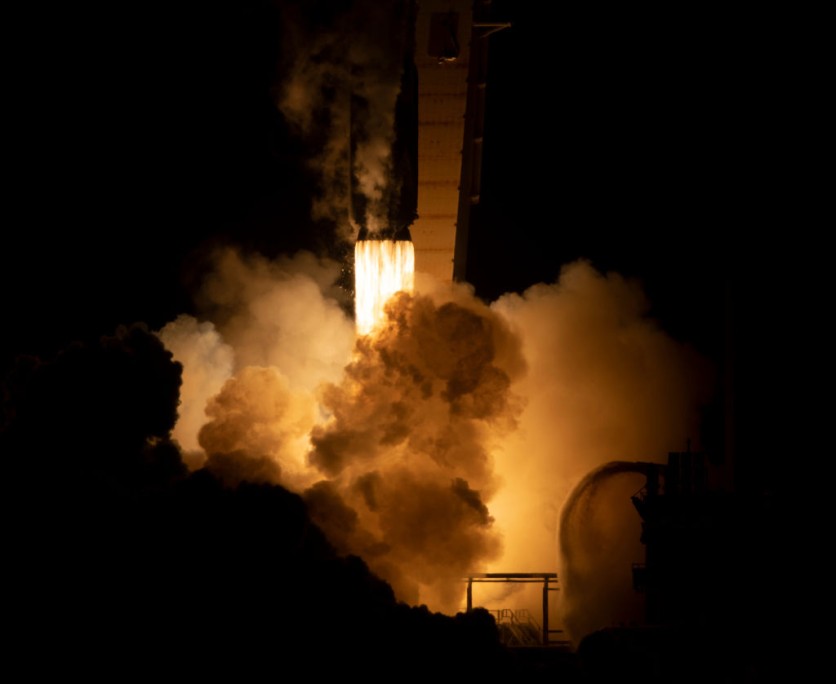SpaceX's Falcon 9 Rocket was on its way to completing its first stage as it gears for sending astronauts to the Internet Space Station (ISS). However, this plan was unfortunately upended.
The rocket crashed into a bridge during transport acquiring serious damages that ultimately delayed the space company's next human launch.

Launch Delayed
As reported first by Space.com, the Falcon 9 rocket's first stage was damaged, which meant that the Crew-5 mission's launch would be delayed in late September. The mission will send four people on a Crew Dragon for a trip to the ISS.
In the live-streamed NASA briefing, Benjamin Reed, senior director of SpaceX's human spaceflight program, confirmed that the booster stage made contact with a bridge along its route.
The rocket stage was on a tractor-trailer traveling between a SpaceX production plant in Hawthorne, California, and a testing site in McGregor, Texas, during the incident.
"We assessed that damage. It was a fairly minor incursion, but it still caused some damage," Reed said.
"We decided to replace the composite interstage and some of the other components on that first stage," he added.
Reed also said that SpaceX had undertaken a process to ensure that the stage will be ready to go and completely safe to fly the crew.
All About the Crew-5 Mission
This recent setback comes after SpaceX revealed that it is still battling hardware problems and that they need to replace an already used heat shield for the next launch.
The members of Crew-5 are Russian cosmonaut Anna Kikina, Japanese astronaut Koichi Wakata, and NASA astronauts Nicole Mann and Josh Cassada.
A seat-swap agreement secured Kikina's spot and will keep NASA astronauts traveling aboard the Russian Soyuz spacecraft, something they have done for years.
The inclusion of Kikina on an American commercial spacecraft, a first for any Russian state space agency cosmonaut, is cited by NASA as proof that Crew-5 represents an unparalleled prospect for international space collaboration.
The joint operation was announced earlier this year and looked to be moving forward at full speed, despite continued hostilities between the US and Russia due to the latter's invasion of Ukraine.
Russia has also announced that it will stop participating in the ISS "after 2024" in order to focus more on developing its own space station.
Related Article : Eutelsat and OneWeb Join Forces For $3.5 Billion Deal To Compete With Elon Musk's SpaceX
This article is owned by Tech Times
Written by Joaquin Victor Tacla

![Apple Watch Series 10 [GPS 42mm]](https://d.techtimes.com/en/full/453899/apple-watch-series-10-gps-42mm.jpg?w=184&h=103&f=9fb3c2ea2db928c663d1d2eadbcb3e52)


